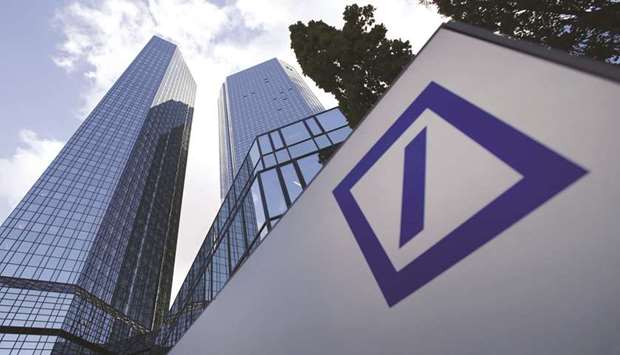The trader, David Liew, pleaded guilty to fraud on Thursday in federal court in Chicago for his role in the spoofing of contracts for gold, silver, platinum and palladium, according to court papers. Along with spoofing – which is placing orders without the intent of executing them in an attempt to manipulate the price – he also acknowledged front-running customers’ orders.
Liew’s cooperation suggests more headaches for Deutsche Bank and its traders. Liew worked on his own but also with at least three other traders at the bank to coordinate spoofing hundreds of times, practices he said he learned from his co-workers, according to court documents. Liew’s employer is described as Bank A in the plea agreement and identified as Deutsche Bank by the person familiar with the matter.
Along with the Justice Department, the Commodity Futures Trading Commission settled an enforcement action against Liew on Friday, banning him from trading in markets the agency oversees.
Liew’s lawyer, Neil MacBride, and a Deutsche Bank spokesman, Troy Gravitt, declined to comment.
Deutsche Bank, which wasn’t charged in the spoofing case and whose shares were little changed on Friday, has reached multiple settlements with US regulators in recent years on issues including rate-rigging and lax sanctions controls. It agreed to pay $7.2bn to the US government in January over the sale of mortgage securities. A Federal Reserve settlement this week over its anti-money laundering lapses required the bank to bring in an outside party to oversee compliance – at least the sixth monitor in recent years. The bank remains under Justice Department investigation for its role in trades that allowed wealthy Russians to move some $10bn out of the country, though it has settled with bank regulators.
The case against Liew is the first fruit of the federal criminal investigation into whether traders at some of the world’s biggest banks conspired to manipulate prices in precious-metals markets. Investors have brought their own lawsuits against a handful of big banks, including Deutsche Bank, alleging manipulation of precious metals markets. In a December court filing, they produced electronic chats showing traders from multiple banks conspiring to rig prices from 2007 to 2013. Deutsche Bank agreed to pay damages to settle cases involving gold and silver trades.
Wall Street banks have been dogged by allegations of silver-market manipulation for almost a decade. The CFTC conducted a multiyear investigation that was closed in 2013 with no allegations of wrongdoing.
By early 2015, futures trading activities of at least 10 banks were under scrutiny by the Justice Department, Bloomberg reported at the time. Prosecutors in the antitrust division closed their inquiry more than a year ago, but their colleagues in the fraud section continued looking into the matter.
Prosecutors have pursued spoofing charges more aggressively since the adoption of the Dodd-Frank financial law, which made the practice illegal, most notably charging a British trader with contributing to the “flash crash” of 2010.
They now have the help of Liew, who was charged in January under seal and is providing the government with information.
Liew joined the bank in July 2009 after receiving his bachelor’s degree as part of the bank’s global analyst program, according to the court documents. Later that year, he was installed at the bank’s metals trading desk in the Asia-Pacific region, where he learned how to spoof from experienced metals traders, the documents say.

